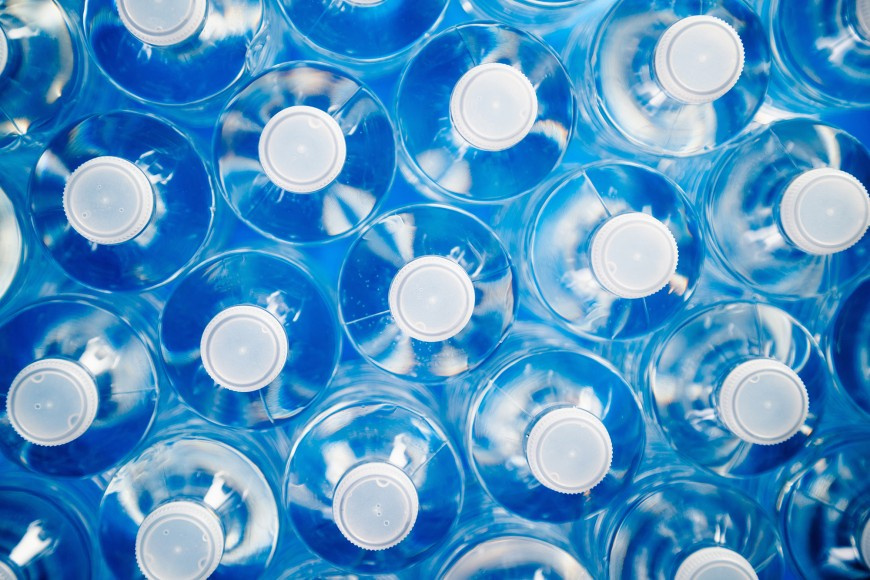
 back to all news
back to all news
‘Talking Trash’ discussion focuses on reducing single-use plastics

The University of Michigan Museum of Art’s recent interactive discussion, “Talking Trash,” shared insights and advice on combating the overwhelming effects of single-use plastic. The event was inspired by The Plastic Bag Store, an immersive public art installation created by Robin Frohardt that provides social commentary on our plastic consumption.
There was a diverse panel of experts in attendance including U-M Program in the Environment Professor and Director Shelie Miller, who gave a presentation about the quantitative impacts of plastic waste on the environment. She opened the discussion by saying, “It's not just a plastic problem, it is a consumption problem.”
Other speakers included Graham Sustainability Scholar Lashaun Jackson, Co-Founder of Live Zero Waste Samuel McMullen, U-M Taubman College Associate Professors Meredith Miller and Thomas Moran, artist and environmentalist Hannah Tizedes, and Founder and Chair of the Detroit River Coalition Genevieve Rattray.
Miller’s eye-opening talk revealed that on average, Americans consume 50 million plastic water bottles a year. She then went on to compare this metric to other environmental impacts. Miller suggested that personal actions like eliminating a single round trip to Detroit is the same as eliminating all plastic water bottles for four years, and that the annual carbon emissions of plastic water bottle consumption per American has the same climate impact of driving a car for 22 miles. Thus, while plastic waste is no doubt a major environmental threat, it may actually be smaller when compared to other sustainability problems such as increased carbon emissions and overconsumption.
In closing, she gave tips on how we can reduce plastic use and our carbon footprint at social events. She suggested recycling all plastic, eliminating single-use plastics, and offering plant-based alternatives. Together, these actions can help reduce our carbon footprint. She noted that we should remain mindful that our consumption of plastic and other waste is not just a problem itself, but a symptom of a larger societal challenge.
After the presentations, the floor was opened up to questions. One person asked “how to manage feeling overwhelmed about the issue of plastic waste,” to which Miller responded that the key is to just focus on things “we can do.” Since plastic waste is much too big an issue for the average person to “fix,” we need to “think beyond tackling the issue of single-use plastics” and instead focus on changes we can make in our everyday lives, like reducing our energy usage and cutting down on material consumption. The key is to make invisible impacts visible, she said.
Another interesting discussion that arose was the issue of institutional versus personal responsibility. For example, we can promote all the recycling initiatives in the world, and it still would not be enough to compact the waste produced by billion-dollar corporations. Overconsumption has been enshrined in our way of life, and issues between capitalism and sustainability remain clear. As Graham Sustainability Scholar Lashaun Jackson remarked, “asking to go plastic free is an ask to go against capitalism.”
Moving away from our material structures will not be easy and can feel overwhelming, Jackson said, but there are still things you can do to make a difference, including simple tasks such as bringing reusable coffee mugs or takeout containers when you go out to eat and doing what you can with what you have.

